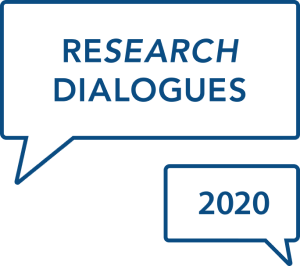
Day 1, April 14 - Presentations
Start Date
14-4-2020 1:00 PM
End Date
14-4-2020 3:00 PM
Publisher
University of Tennessee at Chattanooga
Place of Publication
Chattanooga (Tenn.)
Abstract
Lean and Six Sigma have been lauded in the manufacturing sector for their ability to streamline processes, reduce waste, minimize variation and defects, and improve the bottom line. Although these methodologies have begun to spread to other industries, their impact has been relegated to certain areas and has largely missed others. One area that bears strong consideration is education. Education is heavily process-based and notoriously tight on resources. It is hypothesized that if educators were taught the basics of these strategies and were able to implement them in the classroom setting, the effectiveness of both teaching strategies and classroom operations would improve, saving teachers time and improving school performance in a number of areas. This study focused on developing and testing a workshop-based method for teaching the process improvement methods to K-12 teachers and administrators with the goal of finding a method that could be scaled. Engagement emerged as a significant obstacle, but based the workshop results and feedback from educators, the study found that overall, the workshop is a viable method for communicating these skills. Alternate ideas for future programs are presented based on the challenges encountered with the pilot study.
Date
4-14-2020
Document Type
presentations
Language
English
Rights
http://rightsstatements.org/vocab/InC/1.0/
License
http://creativecommons.org/licenses/by-nc-nd/4.0/
Recommended Citation
Chan, Madison, "The problem-solving workshop: adapting process improvement methodologies for K-12 educators". ReSEARCH Dialogues Conference proceedings. https://scholar.utc.edu/research-dialogues/2020/day1_presentations/53.
The problem-solving workshop: adapting process improvement methodologies for K-12 educators
Lean and Six Sigma have been lauded in the manufacturing sector for their ability to streamline processes, reduce waste, minimize variation and defects, and improve the bottom line. Although these methodologies have begun to spread to other industries, their impact has been relegated to certain areas and has largely missed others. One area that bears strong consideration is education. Education is heavily process-based and notoriously tight on resources. It is hypothesized that if educators were taught the basics of these strategies and were able to implement them in the classroom setting, the effectiveness of both teaching strategies and classroom operations would improve, saving teachers time and improving school performance in a number of areas. This study focused on developing and testing a workshop-based method for teaching the process improvement methods to K-12 teachers and administrators with the goal of finding a method that could be scaled. Engagement emerged as a significant obstacle, but based the workshop results and feedback from educators, the study found that overall, the workshop is a viable method for communicating these skills. Alternate ideas for future programs are presented based on the challenges encountered with the pilot study.

